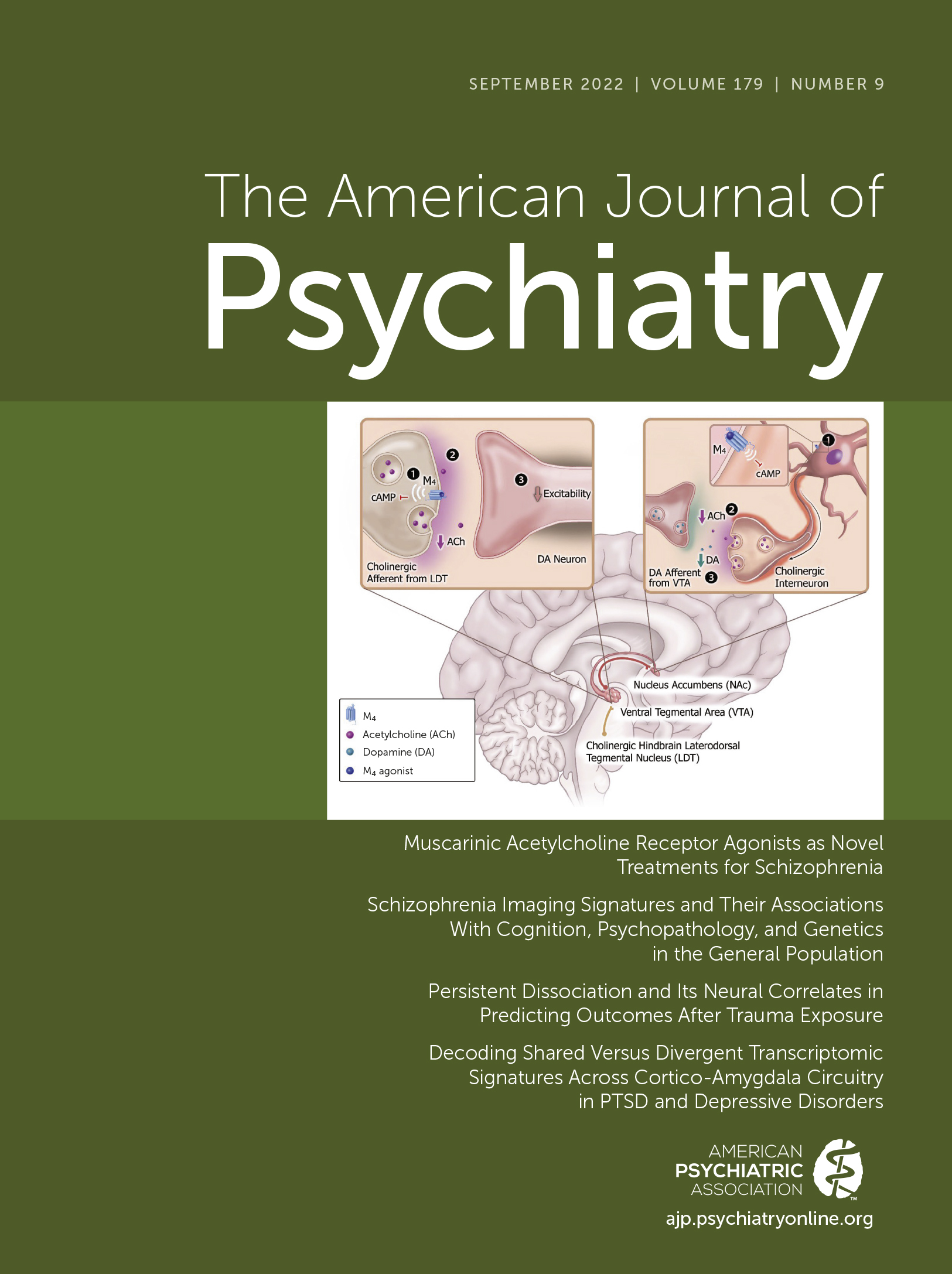Psychotherapy’s Role for Treatment-Resistant Depression?
To the Editor: We write regarding a recent commentary by Markowitz and colleagues (1) concluding that the concept of treatment-resistant depression (TRD) predominantly focuses on psychopharmacotherapy, while psychotherapy is largely neglected. Highlighting the advantages of psychotherapy over psychopharmacotherapy in major depressive disorder and TRD, the inclusion of evidence-based psychotherapy into staging models and treatment algorithms was proposed.
We appreciate the authors’ appeal for a strong therapeutic alliance balancing realistic optimism with recognition of suffering, and we agree with the necessity of refining the definition and the term “treatment resistant depression” due to its ambiguous and stigmatizing character. However, we are reluctant to share the authors’ critical concerns and consequent recommendations raised in the context of the negligence of psychotherapy in clinical studies and treatment guidelines, which we deem precipitant in parts, as they are based on pivotal, but selected and partly nonrecent studies. Exemplarily, recent findings of the European Group for the Study of Resistant Depression (GSRD), one of the largest international consortiums investigating the underpinnings of TRD and related diagnostic, therapeutic, and preventive strategies (2), were not considered. This was surprising to us, since the GSRD’s definition for TRD, that was proven in 2,762 depressed in- and outpatients and adopted by the European Medicines Agency (the European counterpart of the U.S. Food and Drug Administration), has increasingly been utilized in a majority of international trials. This might be relevant especially regarding psychotherapy per se, which was examined in combination with psychopharmacotherapy by the GSRD but, importantly, did not show favorable outcomes over psychopharmacotherapy alone (3). The latter study contrasts with the commentary deeming psychotherapy comparably efficacious, and partly even superior to psychopharmacotherapy. Along with further evidence from the GSRD and other international studies, it emphasizes the fundamental role of the underlying neurobiological interrelationships in major depressive disorder, and especially TRD, which is more appropriately and effectively addressed by biological treatments, such as psychopharmacotherapy, which directly interferes with its underlying neurobiology and hence represents both the recommended first-line treatment and the therapeutic basis. Considering this evidence in context may widen the horizon of interpretation and the related clinical implications—particularly when the GSRD’s naturalistic, real-world study design allowing the presence of suicidality, psychotic features, and comorbidities, which were repeatedly associated with TRD—is taken into account. This contrasts with the most randomized-controlled trials investigating very selective and less severely ill patients, who are often far from the broad clinical routine.
1. : The neglected role of psychotherapy for treatment-resistant depression. Am J Psychiatry 2022; 179:90–93Link, Google Scholar
2. : Results of the European Group for the Study of Resistant Depression (GSRD)—basis for further research and clinical practice. World J Biol Psychiatry 2019; 20:427–448Crossref, Medline, Google Scholar
3. : Combining psychopharmacotherapy and psychotherapy is not associated with better treatment outcome in major depressive disorder—evidence from the European Group for the Study of Resistant Depression. J Psychiatr Res 2021; 141:167–175Crossref, Medline, Google Scholar



